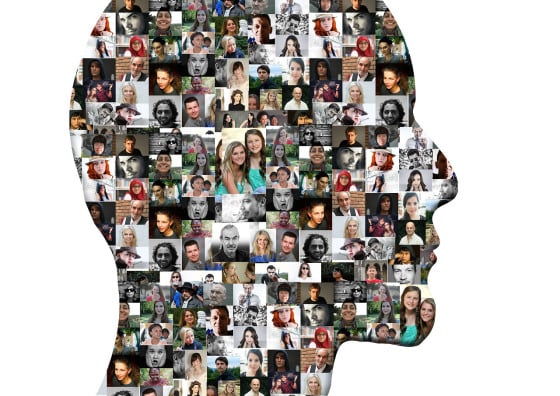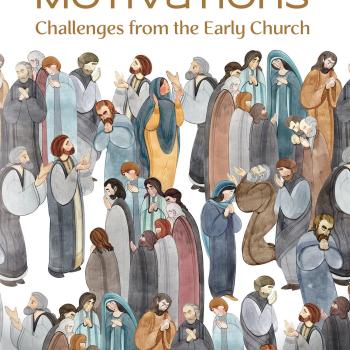When sharing the gospel story and/or talking about sin, I suggest we start with the group, not the individual. In other words, we should discuss sin as a collective-group problem rather than explaining sin primarily as an individual problem.
I know some people might get worried at this point, thinking I am doing a theological “slight of hand” whereby I insert liberal theology and alleviate individuals. Not at all.
Here are 2 reasons.
- When you have the group, you have the individual; if you have the individual, you don’t necessarily have the group.
- Individuals live in and get identity from their community. Moral decisions are made in relation to others.
In short, all sin is inherently social. More on this point below.
“Adam” is a Collective Noun
It’s been long observed that the Hebrew word for Adam/humanity in Gen 1–2 is a collective noun. It is more likely that the “man” (Adam) intends to highlight the whole of humanity; after all, in Gen 1:26–27, the “man”/”Adam” (same original word) is made in God’s image, male and female.
By seeing how Paul uses “Adam,” we better grasp the point that Adam represents far more than one individual.
Adam represents fallen humanity enslaved to sin and death. Christ represents the new humanity, now made slaves to righteousness. Thus, when speaking of “Adam” (e.g. Rom 5; 1 Cor 15), the emphasis is collective, not individual. What we in fact see is the disintegration of the collective, the fragmentation of unity to many broken parts. Then image of God is shattered with the division of the nations.
At first, the Adam story seems mainly to be about an individual; in fact, it’s about a group, i.e. the human family!
“Adam”, collectively, is intended become God’s kingdom of priests. This is not only apparent in the kingdom/Temple imagery of Gen 1-2, we see God’s objective clarified in Israel (Exodus 19:6) and fulfilled in the Church (1 Peter 2:8-10).
If anything, the Adam story pushes us to start with the collective/social, not the individual.
In the next post, I’ll suggest a specific way to do so. For now, I want to explain a few advantages with starting with the group rather than the individual.
Why Start with Groups: Five Advantages
1. Social Nature of Sin
As a stated above, sin is inherently communal.
Sin distorts our view of others, dulls our desires to love people, and divides social groups. There is no such thing as a truly “private” sin. There is always a cost to one’s community, even if it is subtle and incalculable.
Thus, when talking both about sin and the gospel, starting with the group helps people keep a proper perspective on the nature of sin and salvation.
2. The Experience of Sin
People experience sin with their various social groups. Therefore, people can more easily identify the causes and effects of sin. We could mention the pains of divorce, the civil war and ethnic strife that rips apart families, clans, and nations.
As a result, one better grasps the need for a solution that goes well beyond personal sentiment and the so-called “private” sphere.
3. Willingness to Confess Sin
Many times, one is more willing to name and confess sin when explained in a social context. By seeing certain problems in society, a family, or an organization, one can understand the reality and seriousness of our own sin.
Truthfully, we cannot always speak with clarity over specific sins (due to the ambiguity of certain circumstances). However, when we see the pattern of sin in social groups, we can more easily admit that we’ve also done that sort of thing, even if the details are different.
In other words, we can easily dismiss specific sins, but we have a much harder time doing so when mindful of the moral struggles that plague those around us, indeed all humanity.
4. Defensiveness
Of course, all people hate looking bad in front of others. Yet, this doesn’t explain every instance where someone is “defensive” about confessing sin. All too often, people feel they are being spotlighted as somehow “unique” in their problem. A person can feel isolated, as if a special case, when he or she is accused of being a “sinner.”
Everyone knows there is something wrong with the world; everyone also knows they have contributed to it in at least some small way. (Even the most proud will admit imperfection, but will simply say they have comparatively less wrong with them.)
Therefore, when we point out the problem that plagues the entire world, we include our listeners without isolating them as somehow more “evil” than the next person.
5. Balanced
Finally, we can more easily find balance when we note an often overlooked fact. The Bible presents the relationship between sin and people in two ways:
We all are perpetrators as well as victims.
Stereotypically speaking, “liberals” emphasize the former; “conservatives” make much of the latter. The Bible speaks of humanity in terms of both. Not only are we rebels; we are slaves to sin who need to be set free by Christ.
Social systems perpetuate countless evils. For example, laws used to allow slavery. Sin is not only personal; it is pervasive in its influence.
The gospel both provokes conviction and draws with compassion.
Photo Credit: geralt via pixabay





















